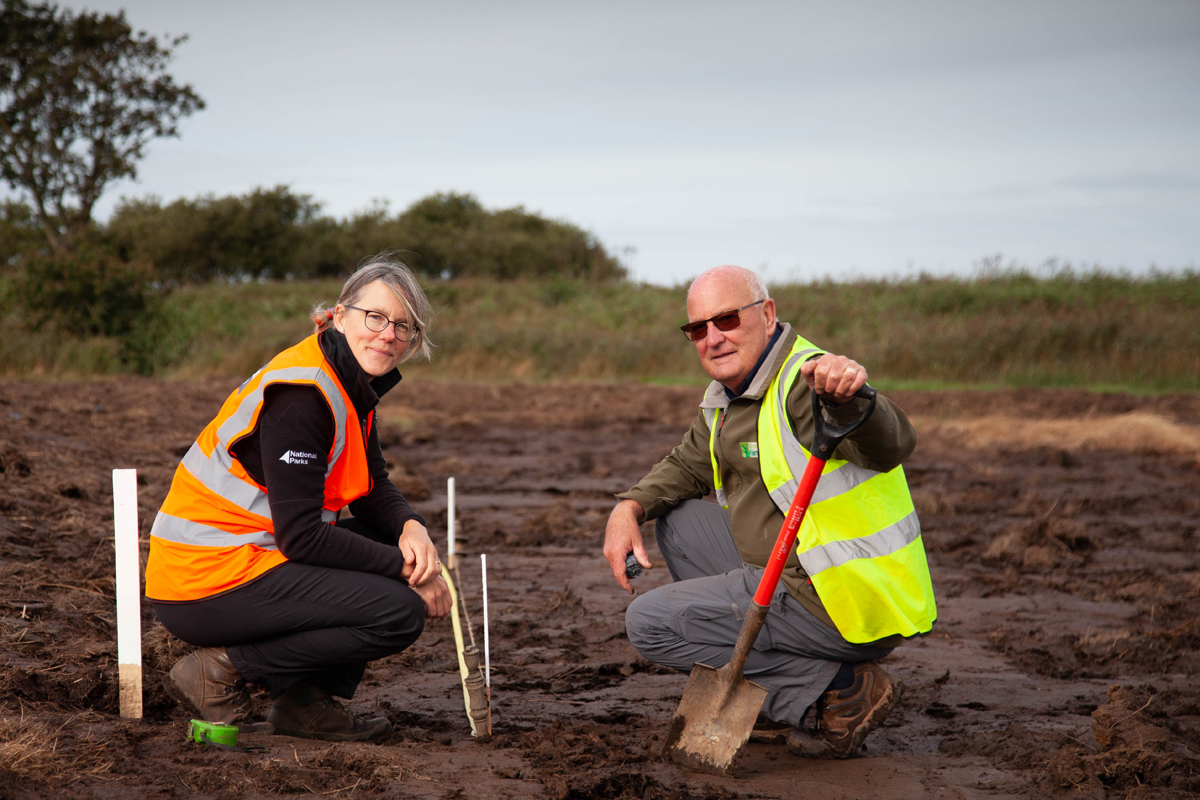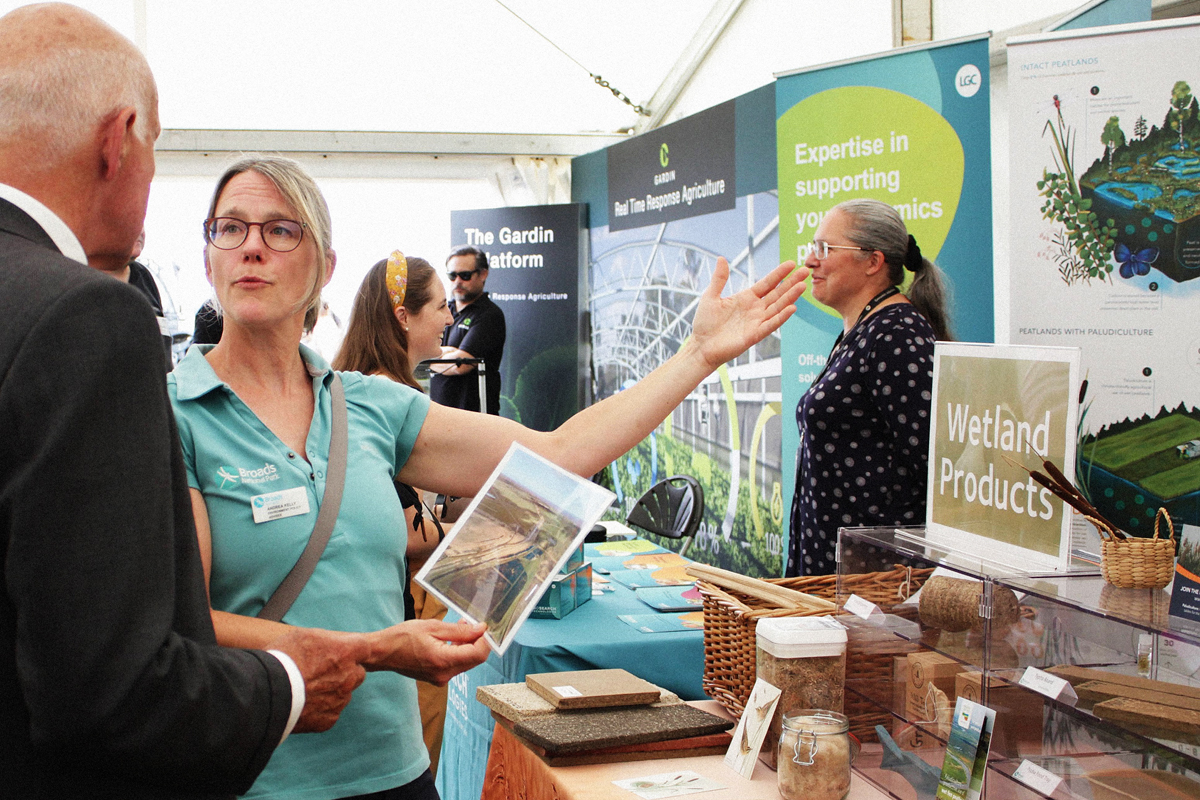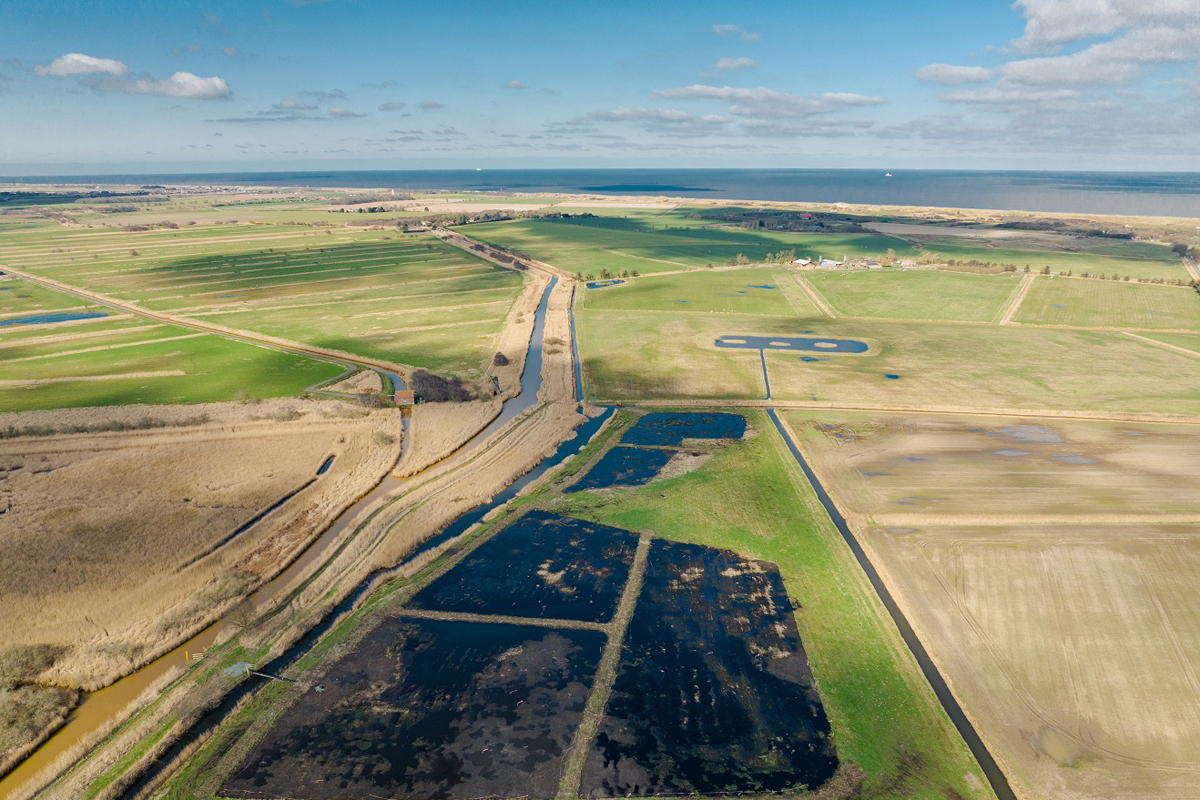New grant to explore how wetland crops could generate income for Broads’ growers
A new partnership project investigating how crops grown in wetlands (known as paludiculture) could provide sustainable income for Broads’ growers, has been awarded £395,500 from DEFRA.

The ‘FibreBroads’ project will work with peatland farmers and growers to overcome the many challenges they face in growing profitable wetland crops (paludiculture) in the Broads and the Fens. It will explore how future farming systems can reduce carbon emissions, hold more water on the land and create benefits for nature.
Plant-based fibres can be grown for materials such as clothing, insulation boards, cavity wall insulation, potting compost alternatives and compostable plates. The project aims to connect growers with construction businesses such as Hudson Architects who will work with Norwich University of the Arts to test paludiculture products and assess their potential as construction materials. They will also create a prototype building to raise awareness about future sustainable construction.
Lowland peatlands found in the Fens and the Broads are some of the most productive soils in the UK, producing 80% of home-grown vegetables and beef. But there are considerable concerns over land subsidence, soil loss and CO2emissions. When peatland soils are drained for agriculture, the soil releases millions of years of carbon into the atmosphere. Paludiculture reverses this process by rewetting soils which become a carbon sink, absorbing CO2.
Broads Authority, Environment and Policy Adviser Andrea Kelly said of the funding:

“The Broads Peat Partnership is delighted to have been awarded this funding by DEFRA.
“Working with peatland farmers, we will assess where change is possible and test novel propagation methods and wetland crop systems. This funding will help farmers to develop business networks around the most viable products.
“The project will build on learning from existing wetland crops being grown on marginal land at the Horsey Estate in Norfolk. Two crops are already being grown here; reed for roof thatching and reedmace which is used to clean water, as well as for construction materials.”
Farmers and land managers are increasingly aware of the carbon-rich soils in the floodplains. It is estimated that there are 27,356ha of deep peat and 65,544ha of wasted peat in Norfolk and Suffolk (Natural Capital Evidence Compendium, 2020), which could play an important role in mitigating climate change whilst remaining a farmed landscape.
Paludiculture offers new opportunities for farmers in the Broads and Norfolk to develop farming systems that are resilient to climate change, but there are still many complex challenges for growers interested in its potential, not least is how water is managed.

The partnership will bring together stakeholders within the Broads Catchment and Norfolk Fens to create knowledge and networks, connecting growers with construction businesses and will share knowledge with learning partners including Fenland Soil, Somerset Levels and the Great Fen Partnerships (Peterborough and Huntingdon).
The Broads Authority also welcomes the publication of the Lowland Agricultural Peat Taskforce (LAPTF) report (the Caudwell Report, published on 29 June). This independent report makes recommendations for a more sustainable future for agriculture on lowland peatlands in England. It reflects the advice of many experts in the field including Andrea Kelly, who represented the Broads Authority on the Task Force.
The task force has made 14 recommendations to government and the wider sector to ensure that lowland peat soils can be managed more sustainably, supporting and incentivising farmers looking to transition to more climate-friendly farming of peat soils.
The FibreBroads Project is funded by the Department for Environment and Rural Affairs (DEFRA) and administered by Natural England. The project runs from June 2023 to March 2025 and partners include the Norfolk County Council (NCC), Norfolk Farming and Wildlife Advisory Group (NFWAG), Hudson Architects (HA), Wetland Products Foundation (WPF), Norwich University of Arts (NUA) and global impact firm Palladium. The partnership is supported by Fenland Soil, Environment Agency, Anglian Water, National Farmers Union, and Broads IDB.
Natural England is delivering the Paludiculture Exploration Fund (PEF) and has announced 12 successful projects for England. The PEF projects will focus on tackling the barriers to developing commercially viable paludiculture on lowland peat soils in England over the next two years.
Wednesday 5 July 2023

